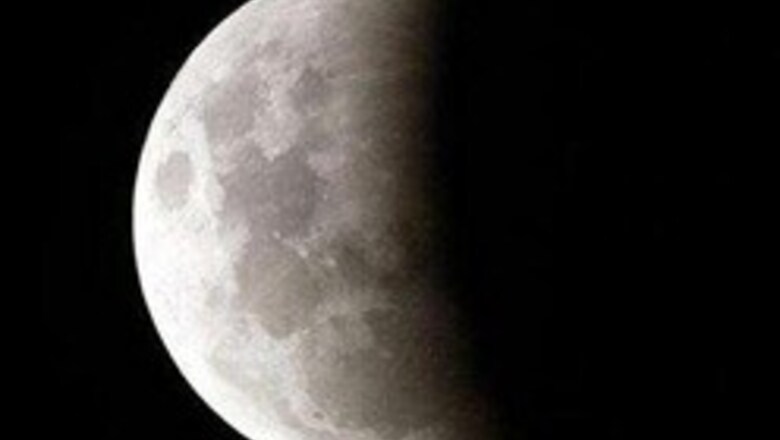
views
San Francisco: The chief scientist behind the twin Mars rovers said that he supports a human presence on the moon but hopes the journey won't dead-end there on Wednesday.
NASA this month announced that a plan to return to the moon would include establishing a lunar outpost for a permanent human presence by 2024. Eventually, the space agency said, it wants to put humans on Mars.
Steve Squyres of Cornell University said that while it makes sense to start with the moon, he fears that budget overruns will ground humans there and foil a manned mission to Mars.
"The best way to explore Mars is with humans," Squyres said during an American Geophysical Union meeting.
Scientists have long been intrigued with the Red Planet and the question of whether it can support microbial life.
The fascination went into overdrive last week when researchers reported finding evidence that liquid water may still gush up to the surface in occasional spurts.
NASA's decision to focus on lunar exploration is ill-timed, given that the Mars missions have revealed a great deal about the planet's ancient history, said Kenneth Herkenhoff, a
US Geological Survey scientist on the team managing the new Mars Reconnaissance Orbiter.
The Reconnaissance Orbiter, which slipped into orbit this year, has beamed back detailed images of the ice-rich deposits on Mars' north pole that show the region underwent recent climate change, Herkenhoff said at the geophysical union meeting.
Meanwhile, the durable rovers, which have been exploring opposite ends of the planet since 2004, continue to amaze scientists with geological discoveries.
Most recently, Opportunity examined cliff faces resembling those found at Zion National Park in Utah, while Spirit saw for the first time a water ice cloud floating through the winter sky.
"The recent cuts in the sciences from NASA is not good," Herkenhoff said. "We're currently drowning in data and more is expected. We need more graduate students involved, not fewer."
Ray Arvidson, deputy principal investigator for the rovers, said the emphasis on the moon could prevent future missions to collect a sample from Mars or to land a super rover on Mars to probe for further evidence of water.
"It would just be unfortunate to lose momentum with all these very exciting Mars discoveries," he said.

















Comments
0 comment